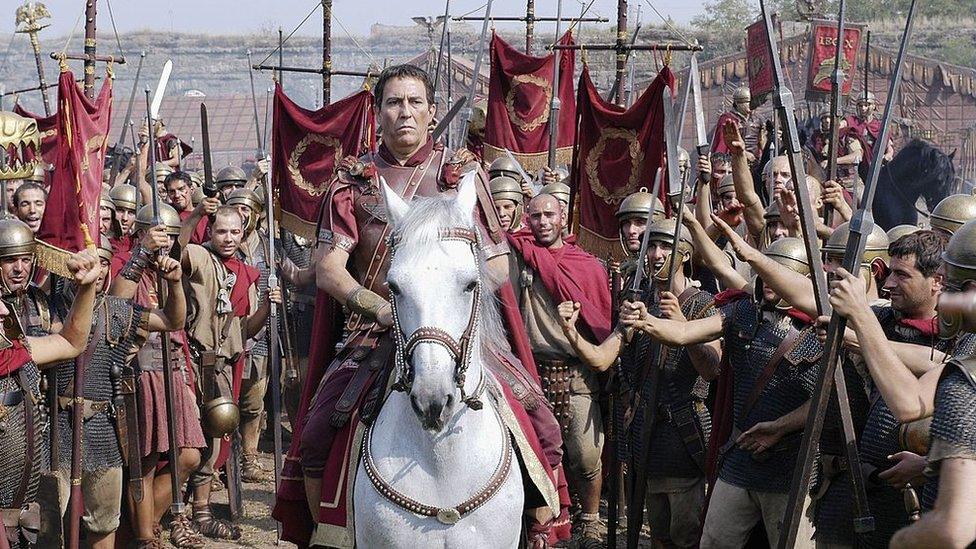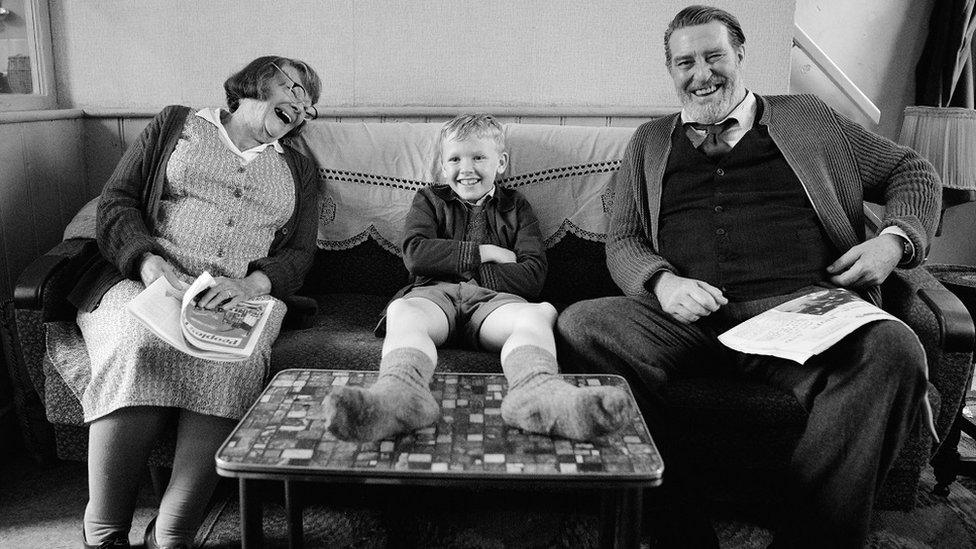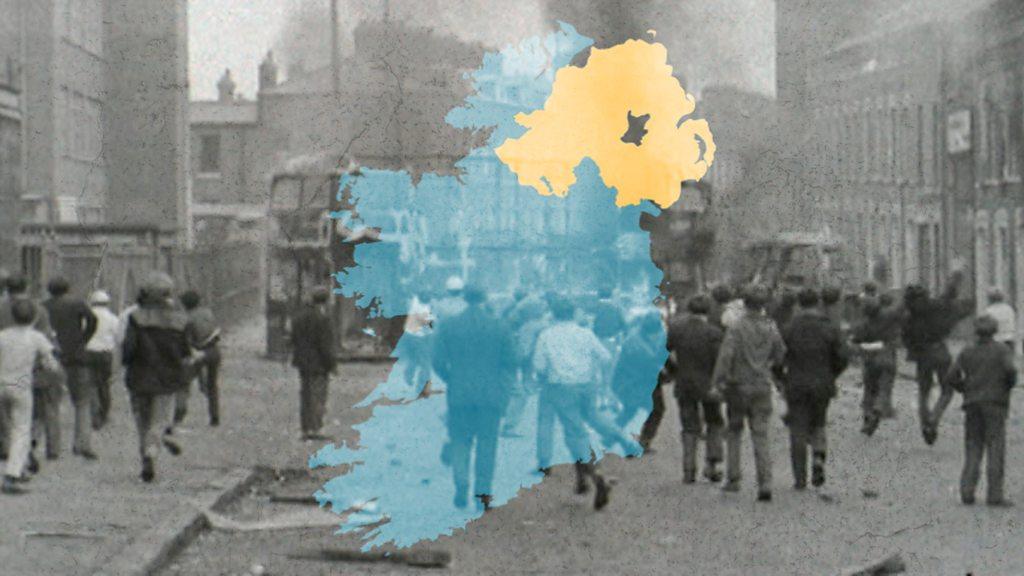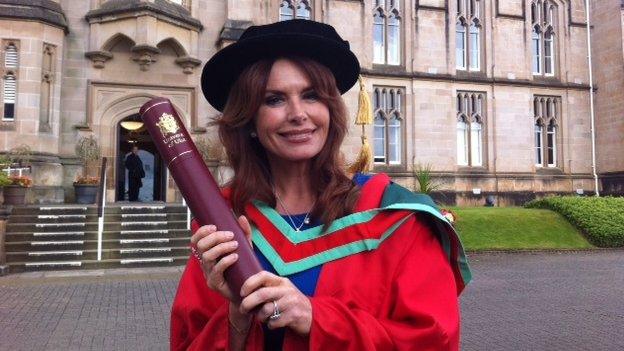Red Lines: Ciarán Hinds 'lucky' to have avoided Troubles violence
- Published

Ciarán Hinds (right) told Mark Carruthers about his journey from Belfast to the Baftas
The Oscar and Bafta-nominated actor Ciarán Hinds has told BBC News NI he feels fortunate not to have been sucked into the violence of the early days of the Troubles when he was growing up in Belfast.
He told the Red Lines podcast "in all honesty I could have got involved in some bad way at some stage".
Mr Hinds, who was a teenager when the conflict broke out in the late 1960s, grew up in a middle-class home in north Belfast.
His father was a local GP and his mother was a teacher.
"There were people joining the IRA, people out to see where you stand", he recalled.
"I'm, at heart, a pacifist. I don't believe in violence - I just don't.
"I think I probably was quite fortunate that I didn't get sucked into it at that impressionable age."

Ciarán Hinds pictured on the red carpet at the 2022 Oscars ceremony in Hollywood
Mr Hinds cited the positive influence of his family at the time - particularly his sister Bronagh.
She was studying law at Queen's University and had been elected the first female president of a students' union in Ireland.
Bronagh Hinds went on to become a leading figure in the Women's Coalition which was influential in the negotiations that led to the signing of the Good Friday Agreement in 1998.
The civil rights movements in Northern Ireland and the United States in the late 1960s, along with the student riots in Paris in May 1968, had a considerable bearing on the actor's developing world view.

Ciarán Hinds appeared in international hits such as Rome (pictured), Game of Thrones and Harry Potter
Mr Hinds said his interest in Irish dancing brought him into contact with a wide range of people in his childhood.
His best friend, he remembered, was a young Protestant from a village outside Larne, County Antrim, who taught him a lot about the countryside and the Twelfth of July.
He said he realised Irish dancing "was for everyone - not one community over another".
When he abandoned his legal studies at Queen's and went off to study at the Royal Academy of Dramatic Art (Rada) in London, the IRA was bringing its bombing campaign to the towns and cities of England.
He described the 1974 pub bombings in Birmingham, Guildford and Woolwich as "terrible".
"I didn't feel shame", he says. "I felt pained for what might happen to the people in England."
Hinds has never forgotten his north Belfast roots, not even in the past couple of years when he found himself feted internationally for his part in Kenneth Branagh's semi-autobiographical film, Belfast.

Ciarán Hinds in the Oscar-nominated film Belfast alongside co-stars Judi Dench (left) and Jude Hill (centre)
In a long and distinguished career that spans the stage, television and film, Hinds has worked with leading directors including Martin Scorsese, Sam Mendes, Steven Spielberg and Peter Brook.
He said as far as the arts were concerned, Northern Ireland punched "way above our weight".
He is rarely involved himself directly in the politics of this place, though when Liz Truss was briefly prime minister he wrote to her to take issue with the UK government's policy on the Northern Ireland legacy issue.
"Funnily enough, she never answered. I guess she didn't have time", he said wryly.
He said truth and justice was "very important" and the idea of "limiting criminal investigations" was something that concerned him deeply.
And there was one last thing he felt "hugely passionate about" in our interview - integrated education.
"It's not rocket science", he said, but "one of the most important things that should have been going on here since the 1980s".
You can listen to Ciarán Hinds' Red Lines interview in full on BBC Sounds.
Related topics
- Published13 August 2019

- Published8 February 2022

- Published7 July 2014
